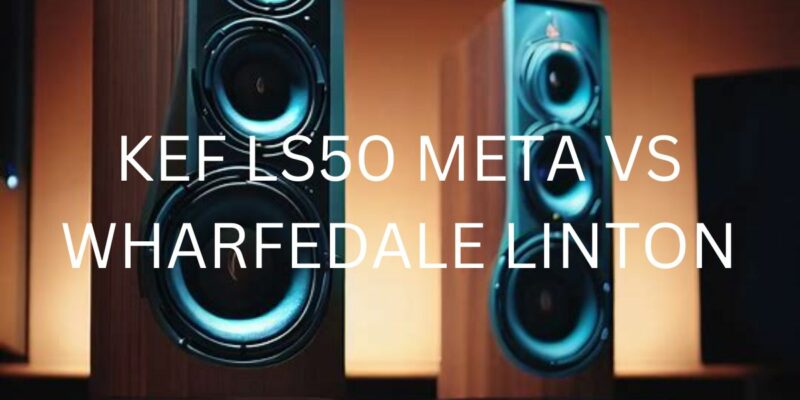The world of audio enthusiasts is filled with a myriad of choices when it comes to premium bookshelf speakers. Among the most popular contenders are the KEF LS50 Meta and the Wharfedale Linton. In this article, we will delve into the comparison between these two exceptional speakers, exploring their design, performance, and overall listening experience. So, let’s dive in and discover which speaker reigns supreme in this ultimate audiophile showdown.
Design and Build Quality
The KEF LS50 Meta showcases a sleek and modern design with its distinctive curved baffle and Uni-Q driver array. Its sturdy construction ensures minimal resonance and vibrations. On the other hand, the Wharfedale Linton embraces a classic aesthetic, featuring vintage-inspired elements such as a solid wood cabinet and a retro grille design. Its build quality exudes a sense of timeless elegance, adding a touch of sophistication to any room.
Driver Technology
The LS50 Meta boasts KEF’s renowned Uni-Q driver array, where a tweeter sits in the center of the midrange driver. This technology provides exceptional coherence and precise soundstage imaging. The Linton, on the other hand, employs a more traditional driver configuration, with a separate tweeter and midrange driver. While both speakers deliver outstanding sound reproduction, the Uni-Q design of the LS50 Meta offers a more focused and immersive listening experience.
Sound Performance
When it comes to sound performance, the LS50 Meta offers a remarkable level of detail and clarity. Its Meta Acoustic technology, which includes a metamaterial absorber, further enhances the speaker’s ability to minimize unwanted resonances and deliver clean sound reproduction across a wide frequency range. The Linton, with its warm and engaging sound signature, delivers a more relaxed and laid-back listening experience. Its larger cabinet size contributes to a robust and full-bodied sound, making it an ideal choice for fans of a more vintage sound profile.
Bass Response
The LS50 Meta features an innovative port design that reduces turbulence, enabling it to produce tight and controlled bass. It offers impressive low-frequency extension for a bookshelf speaker of its size. On the other hand, the Linton boasts a larger cabinet, which allows for a more generous bass response. With its dual bass port system, the Linton produces deep, impactful bass that can fill larger rooms with ease.
Versatility and Room Placement
The compact size and rear port design of the LS50 Meta make it suitable for placement near walls or on bookshelves. It can adapt to a variety of room sizes and configurations without compromising its performance. The Linton, being slightly larger, benefits from a bit more breathing space. Its rear-firing ports require a bit more distance from walls for optimal performance. However, its larger size also contributes to a more expansive soundstage, making it a great choice for larger listening areas.
In the battle between the KEF LS50 Meta and the Wharfedale Linton, there is no clear winner as both speakers offer distinct advantages. The LS50 Meta captivates with its modern design, advanced driver technology, and exceptional detail. On the other hand, the Linton appeals to those seeking a vintage aesthetic, warm sound signature, and robust bass response. Ultimately, the choice between these two outstanding speakers depends on personal preference, room size, and desired listening experience. Whichever you choose, both the KEF LS50 Meta and the Wharfedale Linton promise to provide an immersive and captivating audio journey for any discerning audiophile.

